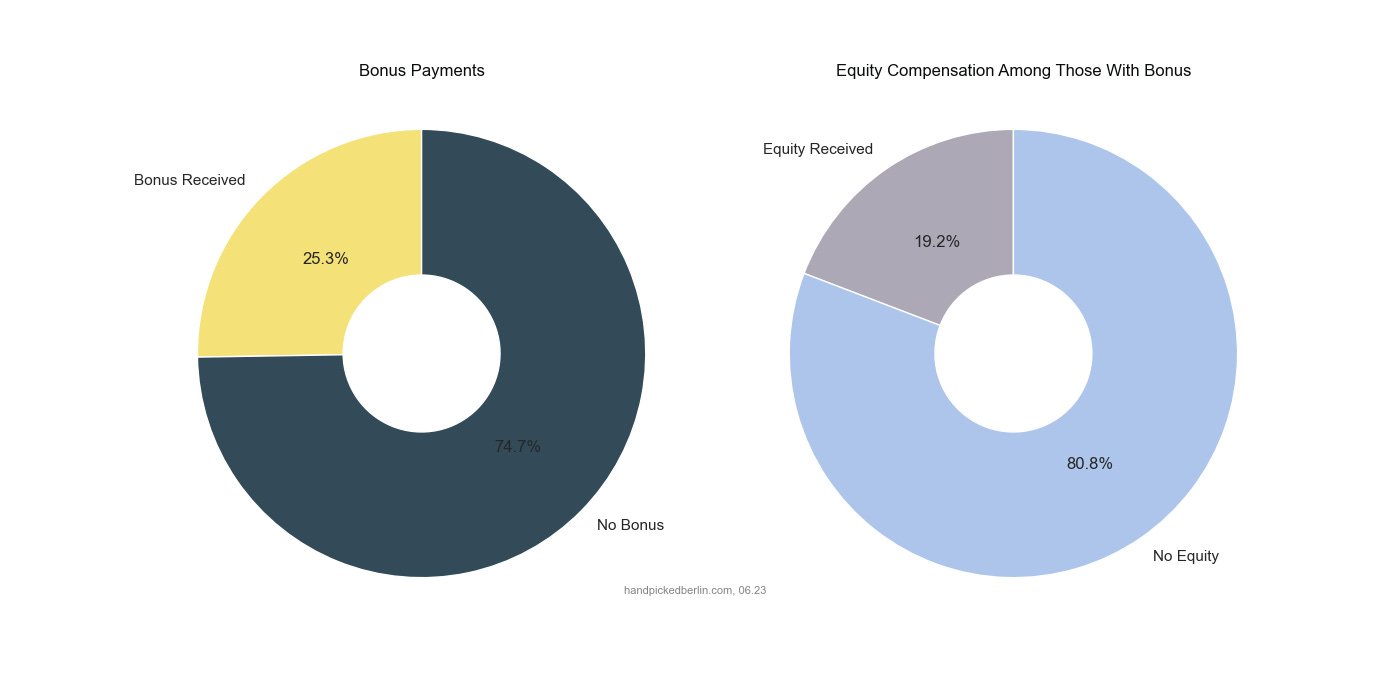Berlin is known for its thriving startup and investment ecosystem. But how much will you earn is the question for many people considering a move to the German capital.
A recent survey by the author of the weekly tech newsletter, Handpicked for Berlin, offers an insight into what people are earning right now. The data is based on 970 survey respondents (878 respondents were based in Berlin, while 92 worked remotely for Berlin-based organisations).
While it's unclear how many respondents are working specifically for startups, over 60% work for private firms and smaller companies.
The data reveals that the average total annual gross salary is €71,470. The median is €70,000.

The research endeavoured to group a cornucopia of role titles into measurable order — no easy feat. It offers some interesting reveals:
- "A very distinct group" of Solutions Architects were paid the best.
- Senior Data Scientists are the highest paid, with an average salary of €95,800 and a median €97,000.
- Solution Architects average salary €90,667 and median €93,000
- Senior Software Engineers average salary of €90,318 and a median €88,000.
- Product Managers (€74,700 and median €70,000) fare far better than Project Managers (€66,777 and median €62,500).
- Architects are underpaid, earning an average salary €43,000 and a median of €48,000.
Bonuses are still a thing?

And while we've seen evidence this year of companies reducing their staff and opting for hiring freezes, a good third of respondents already received a raise in the last six months:
However, only 25 percent of employees could count on a performance bonus. Almost 20 percent of the ones with bonuses also received an equity package.
Some caveats
Opt-in sample sizes are always skewed and, in this case, are limited to newsletter subscribers — most survey respondents (over 70 percent) were male, aged between 25 and 35 and worked in tech. The author of the research is at pains to point this out.
Further, the salaries are considerably higher than the figures I've seen quoted earlier elsewhere. For example, a 2021 study by Stepstone suggests that Berlin salaries are lower than the national average, putting them at around €56k.
Have salaries increased since then? Do these current higher figures
point to greater competition for talent, particularly in startups or simply represent a sample skew?

It's also worth noting that despite people from non-EU countries leading with the highest median, many people, especially migrants from outside Europe, people of colour and women struggle to break into the Berlin tech scene, especially in junior roles.
And then there's the cost of living to consider.
Finding permanent housing is no easy feat
Berlin is far cheaper than San Francisco and Sydney, but you'll pay a decent amount of coin for housing right now, assuming you can get a rental lease in the first place. In Q3 2022, Statista lists that the average square metre rent was €12,78. In 2020, one square metre in Berlin's flats was rented for €9,9. In 2023, the average rent of an apartment in Berlin is €25,45 per m².
Also, the amount you take home varies according to your marital status and whether you have kids — although I'm not sure what the figures are regarding unpartnered people working in startups.
However, this survey is an important piece as to the state of Berlin's workforce right now, considering plans to overhaul to skilled migration visas in 2024, in response to worker shortages — a report by the Institute of German Economy (IW) released in April said employers last year could not fill around 630,000 job vacancies in their industries. Further, comparing the stats to next year's results will be interesting.
The survey makers also encourage people to replicate the survey in their own city or region.
Lead image: Vale.



Would you like to write the first comment?
Login to post comments